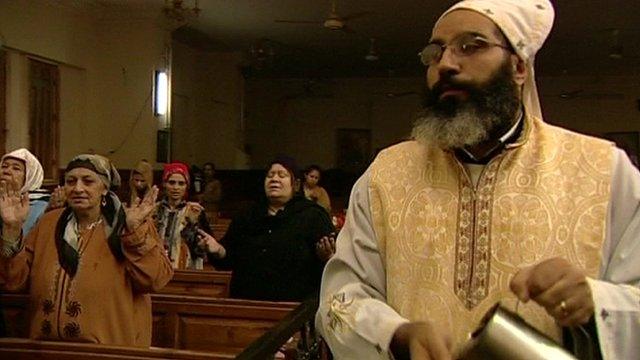Egyptian Christians living in fear for the future
- Published
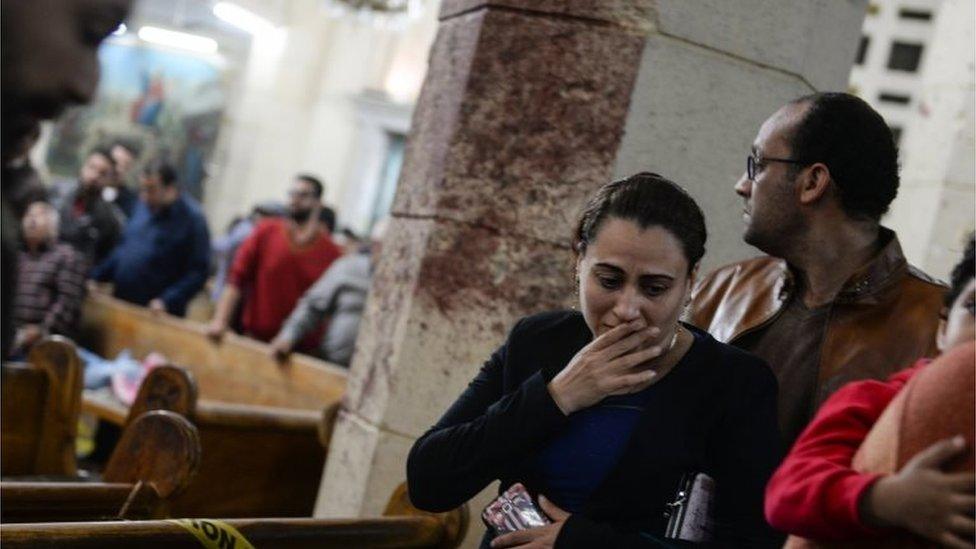
IS said it carried out twin bombings in Alexandria and Tanta
At the ancient Monastery of St Mina in the desert sands of Egypt, a low concrete tomb holds the remains of Christians slaughtered for their faith - not in Roman times, but earlier this month.
They were among almost 50 people killed in co-ordinated attacks at two churches. The bombings - on Palm Sunday - were claimed by the so-called Islamic State (IS).
Priests at the monastery say persecution is as old as the faith.
"The history of the Christians is like this," said Father Elijah Ava Mina, his flowing white beard contrasting with his black robes. "Jesus told us 'narrow is the gate, and difficult is the way'."
The burial chamber now holds seven coffins but there is space for more. Future attacks look all but guaranteed. The Egyptian branch of IS has said Christians are its "favourite prey".
The beleaguered minority accounts for an estimated 10% of the country's population of 90m, which is predominantly Muslim.
Most Christians here belong to the Coptic Orthodox Church, which traces its roots to the Apostle Mark. IS struck at the historic heart of the faith. One of its targets was the oldest church in Egypt - St Mark's Cathedral in the port of Alexandria.
'My son'
When the bomber came to the wrought iron gates of the cathedral, Gergis Bakhoom had just left. Back at his tiny tailor's shop the 82-year old got word of the explosion.
He rushed to hospital in time to witness his oldest son, Ibrahim, take his last breath.
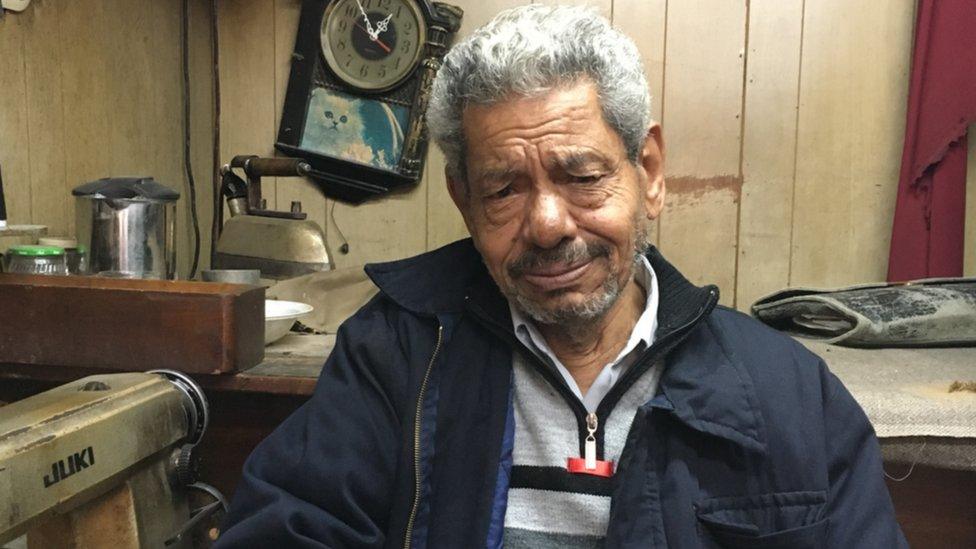
Gergis Bakhoom narrowly escaped the bombing at St Mark's Cathedral
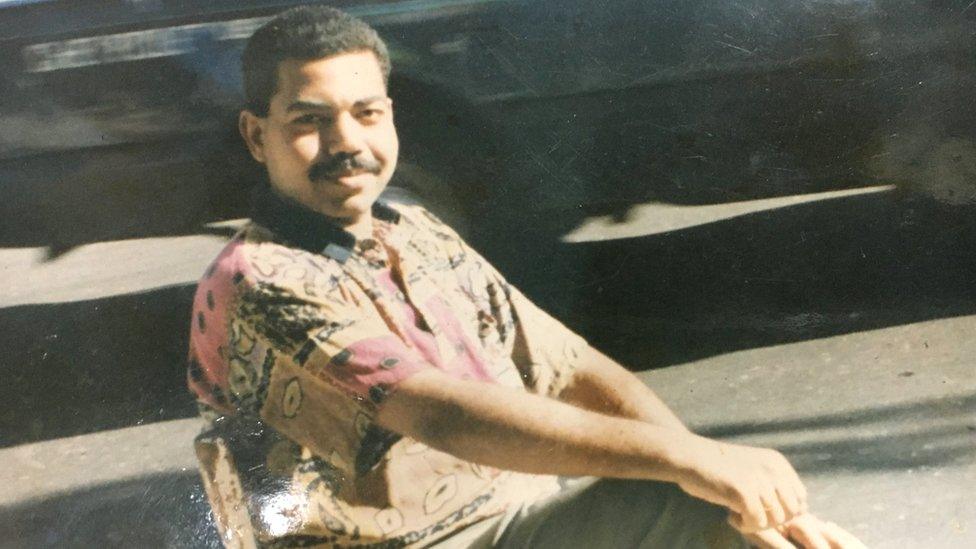
... but his son Ibrahim Bakhoom was killed
"He was gasping for air," he said, mimicking the act. "After that they got a sheet and covered him and sent him to the morgue. I saw it with my own eyes. He should have buried me," he wept. "Instead I buried him."
Father and son toiled together, sharing a sewing machine. "He had a goal in his life," said Mr Bakhoom. "He worked hard, stitch by stitch, to support his children."
The grief here is fused with anger. After the first attack that day, at a church in the city of Tanta, Christians beat a senior police official in the street - enraged that IS could strike their community again. The extremists killed about 30 mass-goers in Cairo last December.
'We have no value'
The latest bombings robbed Marian Abdel Malak of her three of her loved ones, including her 18-year old brother, Bishoy.
Lately he had been going to church often and had told his family he wanted to die as a Christian martyr. They are all waiting their turn to do the same, according to Marian.
"If things stay like this and we don't get our rights we definitely have no future," said the 26-year old. "We would be better off dead because we don't have any place anywhere in the country - in schools, or in government departments. We don't have any value."
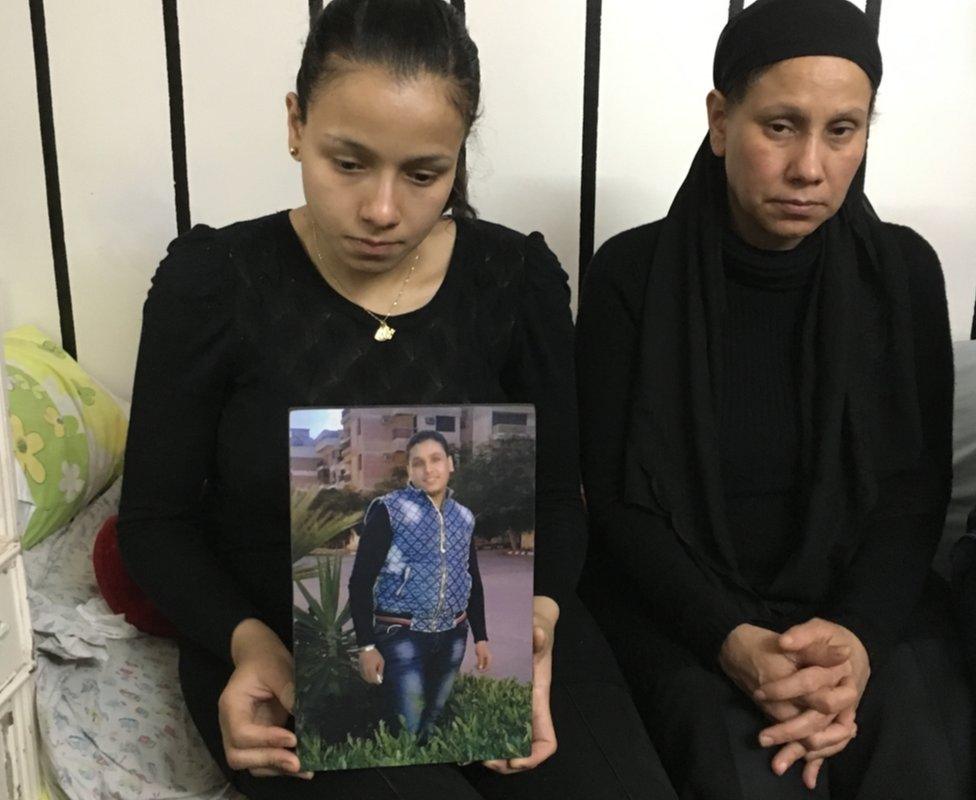
Marian Abdel Malak lost her brother, Bishoy, in the same attack
The authorities should have tightened security back in 2011, according to Bishoy's friend, Sandro George, when some two dozen people were killed in another church bombing in Alexandria.
"If they seriously wanted to secure the churches and fend off any dangers that would have happened then," he said. "After that blast there were only two officers guarding the church."
Security has been stepped up after the most recent attacks. Egypt's President Abdul Fattah al-Sisi announced a three-month state of emergency and deployed the military near churches. But some Christians warn that when the headlines fade, the security will too.
Papal visit
As worshippers flocked to St Mark's for a recent mass, troops in an armoured vehicle were stationed at a corner nearby.
A few hours later - with crowds still arriving for the lengthy service - the armoured vehicle was already gone.
Beleaguered Copts say their community is at risk not only from IS, but also from sectarian tensions and long-standing discrimination.
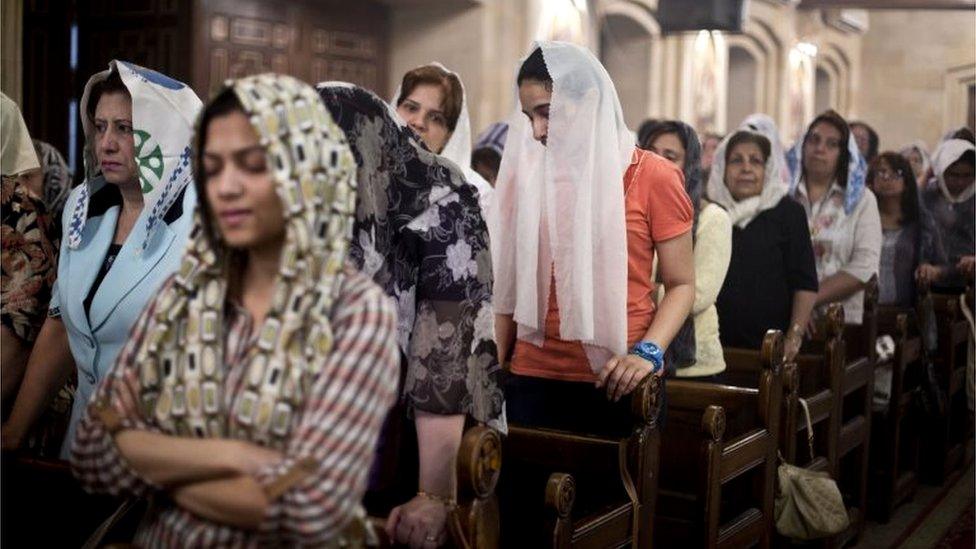
Christians comprise about 10% of Egypt's population, but increasingly feel under threat
A law introduced last year has made it harder to even build a church, according to Ishak Ibrahim, a researcher on the issue of religious freedom.
If Christians try to gather together to pray at home, he says, they can be burned out of their houses.
As they grieve for their new dead, Christians here are preparing for a visit from Pope Francis, who is coming to Egypt on a "mission of peace".
The pontiff will find new fears for the future in one of the oldest Christian communities in the Middle East.
But some are drawing strength from their suffering.
"I am not afraid," said Nadia Nazeem, Bishoy's mother, her voice almost extinguished by grief.
"Bad things happened, are happening and will happen in the future. But I will not stop going to the church. I will go to all the churches."
- Published10 April 2017
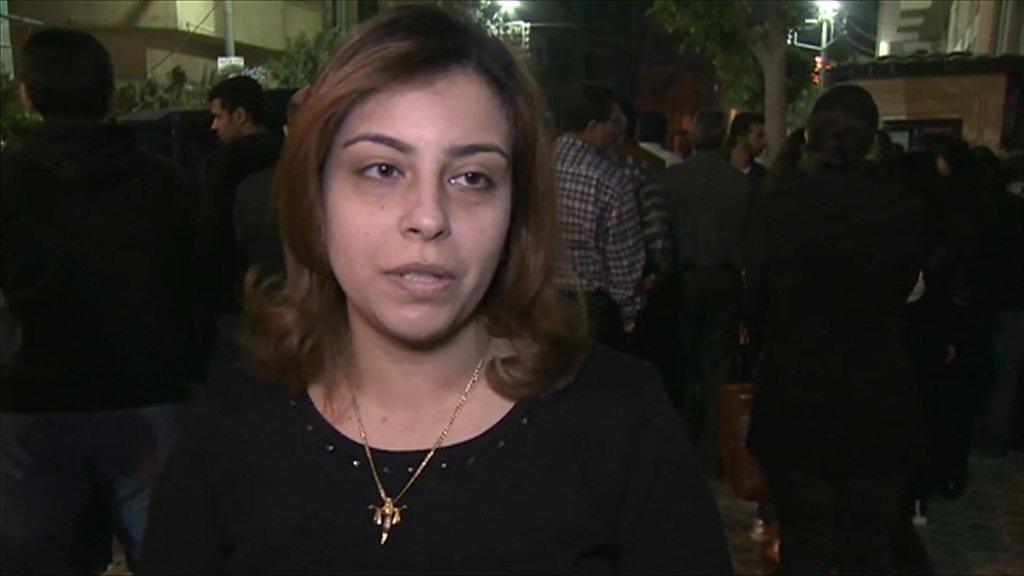
- Published10 April 2017
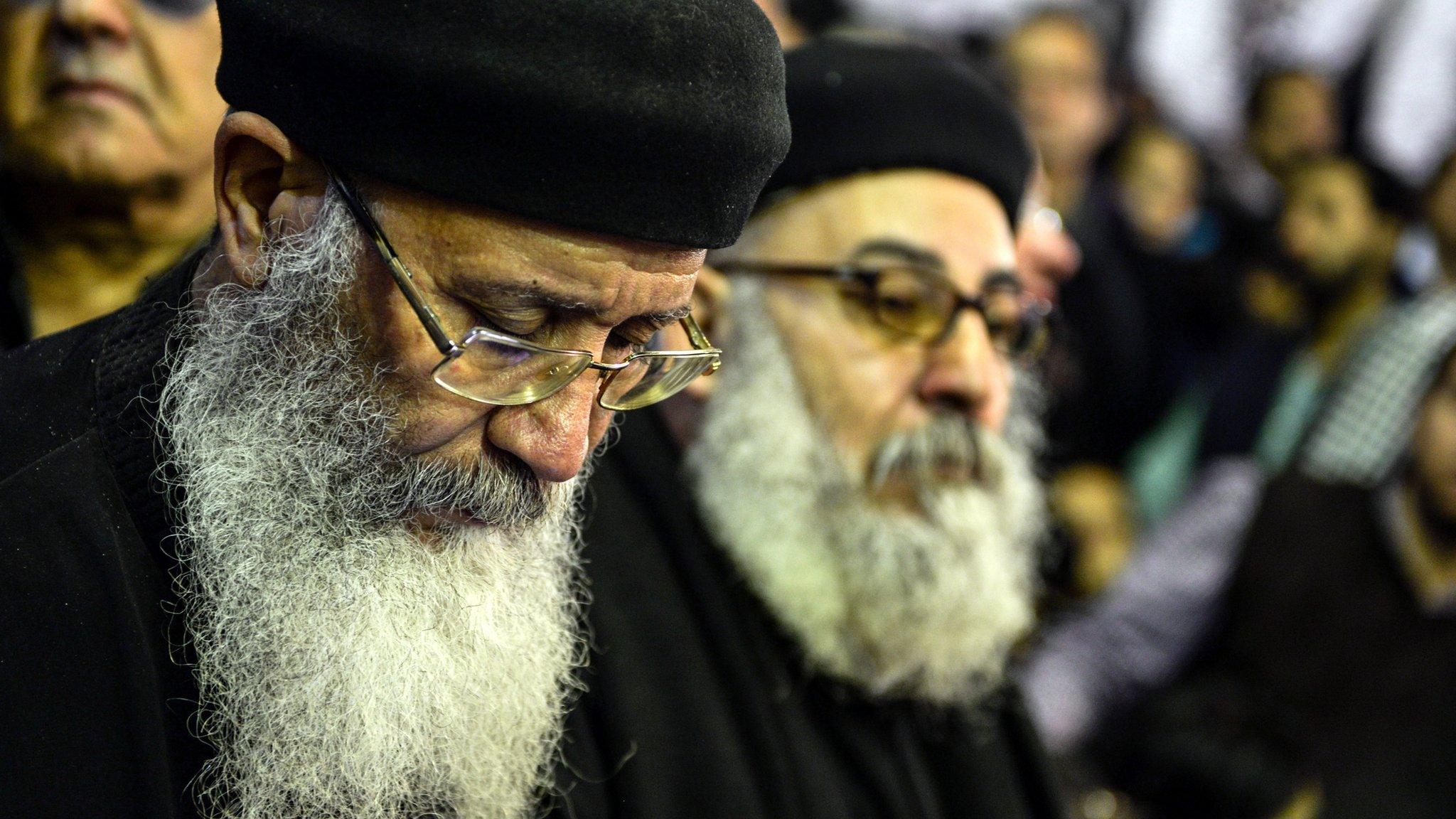
- Published9 April 2017
- Published16 February 2015
